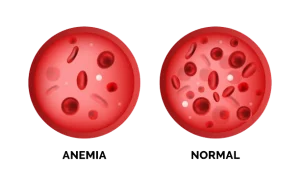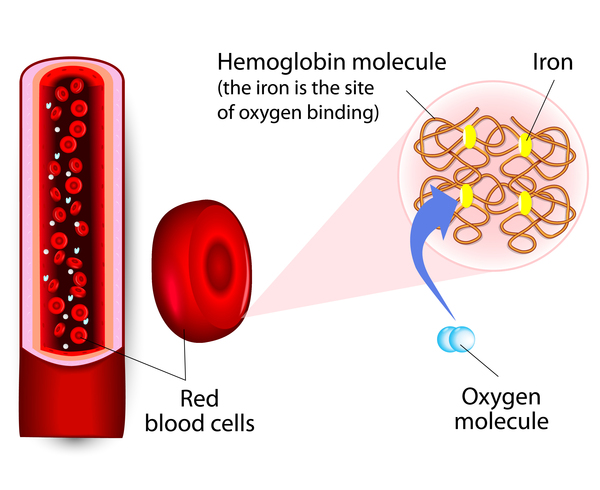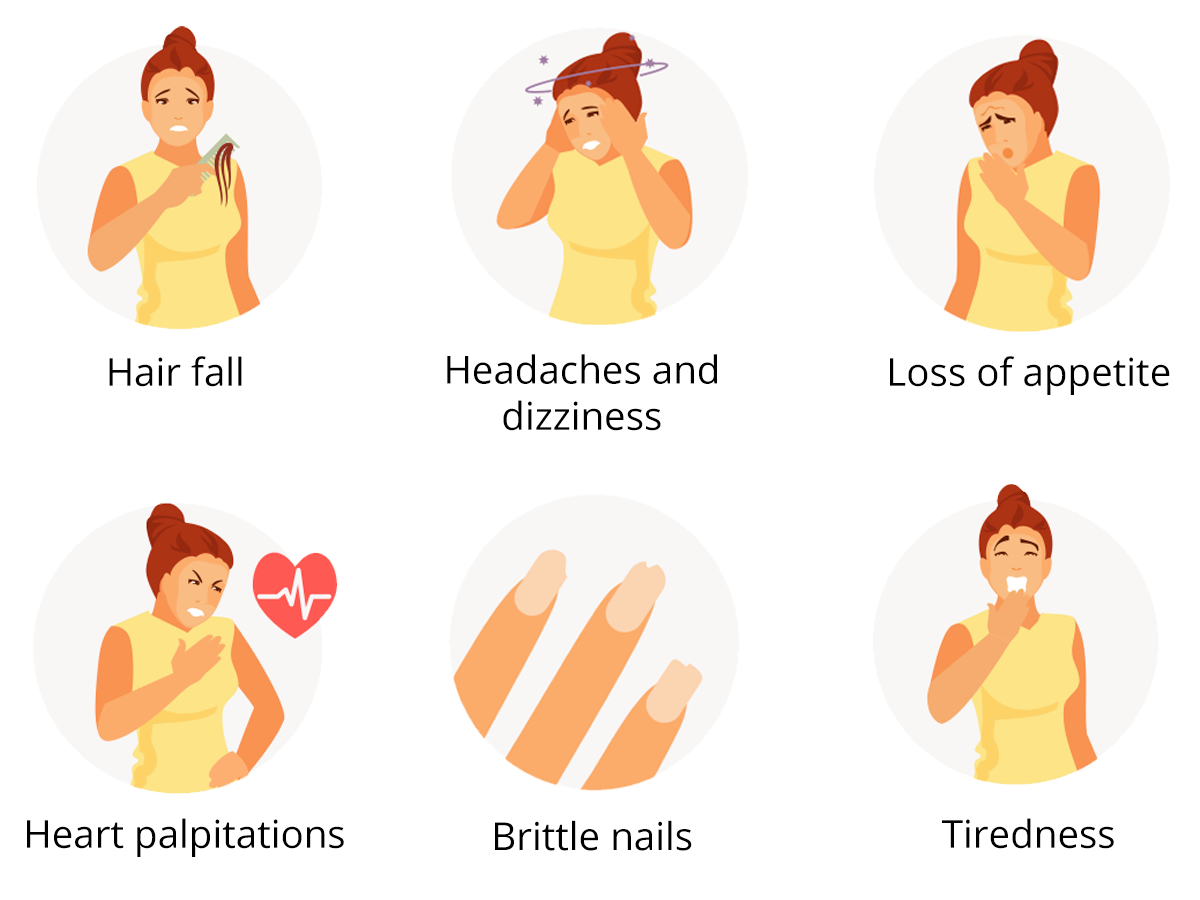What is Iron Deficiency Anemia?
Iron deficiency anemia can be defined as a reduction in the number of hemoglobin carrying red blood cells in the body due to a lack of iron. A number of factors contribute to and exacerbate the effects of iron deficiency, but it is ultimately a result of the body utilizing more iron than it is provided.

Some of the common causes of iron deficiency include:
- Insufficient nutritional intake
- Blood loss due to menstruation or injury
- Drug interactions
- Dietary iron absorption interference
- The presence of certain diseases or disorders
- Chemotherapy-related anemia
- Iron Deficiency anemia of Inflammatory Bowel Disease
- Chronic Kidney Disease-related anemia
- Celiac Disease frequently suffers from IDA
- Iron Deficiency anemia after bariatric surgery
Some of the common causes of iron deficiency include:
- Insufficient nutritional intake
- Blood loss due to menstruation or injury
- Drug interactions
- Dietary iron absorption interference
- The presence of certain diseases or disorders
- Chemotherapy-related anemia
- Iron Deficiency anemia of Inflammatory Bowel Disease
- Chronic Kidney Disease-related anemia
- Celiac Disease frequently suffers from IDA
- Iron Deficiency anemia after bariatric surgery

Iron is a building block of hemoglobin, and a vital component of our body’s natural oxygen delivery system. Hemoglobin is an oxygen-binding protein found within red blood cells, and is responsible for the collection of oxygen molecules from the lungs for delivery throughout the body.
Maintaining good oxygenation requires iron to make hemoglobin, folic acid and B12 to make red blood cells, healthy lungs to allow oxygen exchange, and a healthy heart to pump the red blood cells where they need to go. A problem with any of these components will lead to a reduction in oxygen levels in the body. In the case of iron deficiency, this will lead to a reduction in hemoglobin levels which the body will try to compensate for by increasing the heart and respiratory rate.
Iron deficiency anemia can be defined as a reduction in the number of hemoglobin carrying red blood cells in the body due to a lack of iron. A number of factors contribute to and worsen the effects of iron deficiency, but it is ultimately a result of the body utilizing more iron than it is provided.


What Are the Symptoms of Iron Deficiency?
- Tiredness/ Insomnia
- Irritability or emotional mood swings
- Trouble sleeping
- Weakness/ Decreased appetite
- Headaches/ Low exercise tolerance
- Pronounced lack of energy
- Skin pigmentation decreased around the eyes, in the mouth and gums
- Fingernails may become thin and fragile, become white, and change shape
- Hair loss, or hair may become brittle, weak, and dull
- Inflammation of the structure of the mouth (cheeks, gums, tongue, lips, throat and roof or floor of the mouth)
- Pica (strong craving for non-food items such as soil, metal coins, or paint is present)
If you are concerned about being iron deficient, it is imperative to get medical treatment as soon as possible. Your doctor may prescribe a combination of dietary adjustments and iron supplements such as Ferosom Forte, a LCE Liposomal™ Iron which is proven to provide patients with symptom relief with low instances of side effects. Ferosom Forte is available in non-prescription form at your pharmacy. Ask your physician or pharmacist about the benefits of iron supplementation with a LCE Liposomal™ Iron and the best course of action for your treatment.
References:
Centers for Disease Control and Prevention. Iron deficiency – United States, 1999–2000.MMWR 2002;51:897–899.
US National Library of Medicine, NIH. Iron deficiency anemia. – Office of Dietary Supplements, NIH.Dietary supplement fact sheet.
